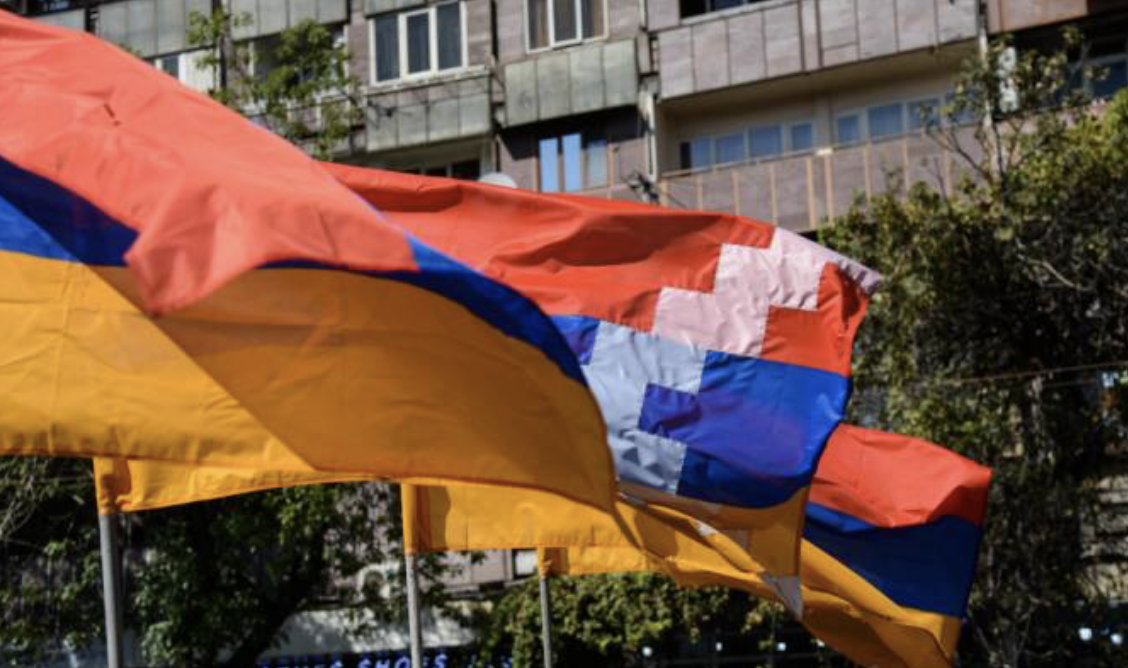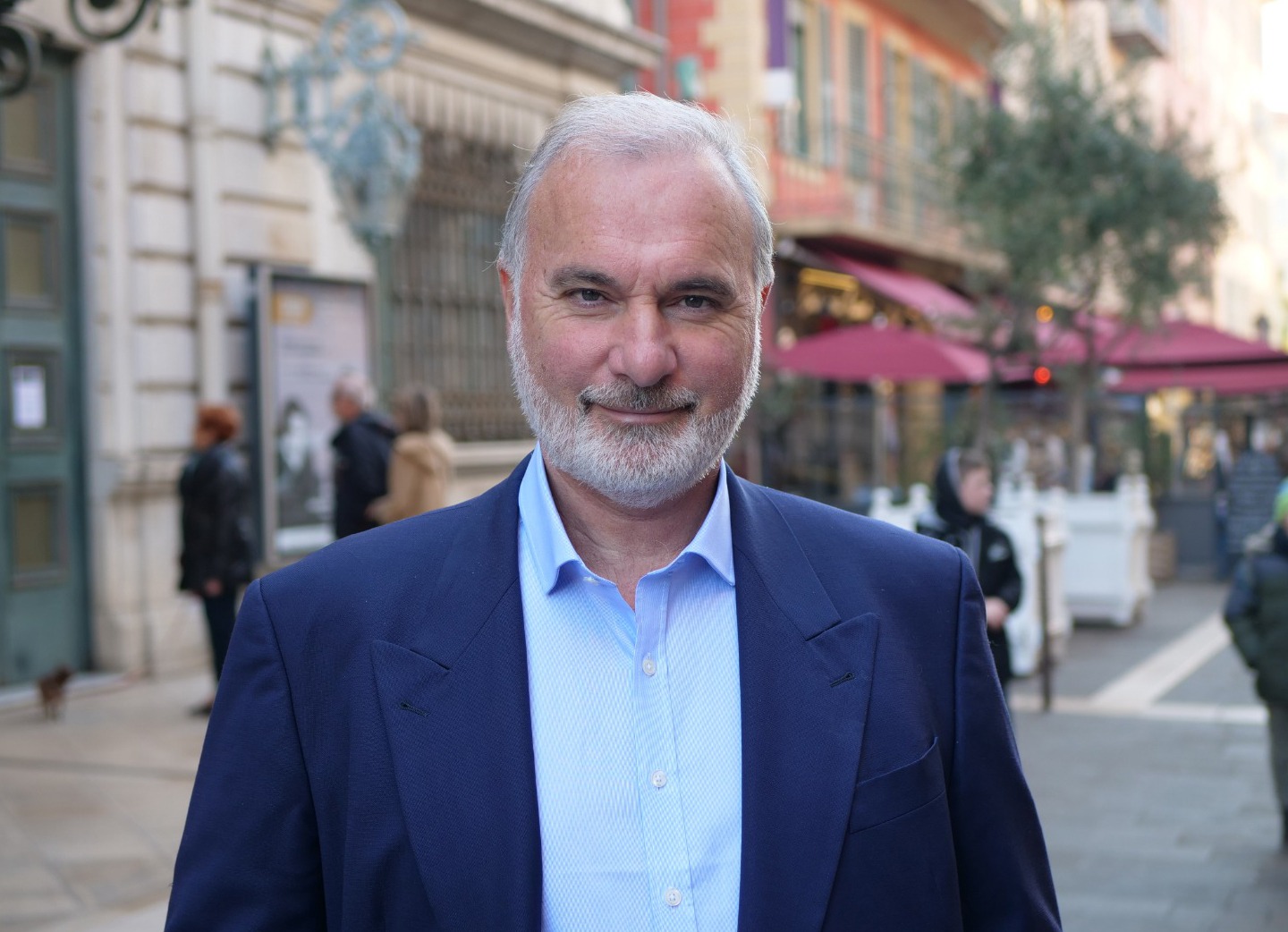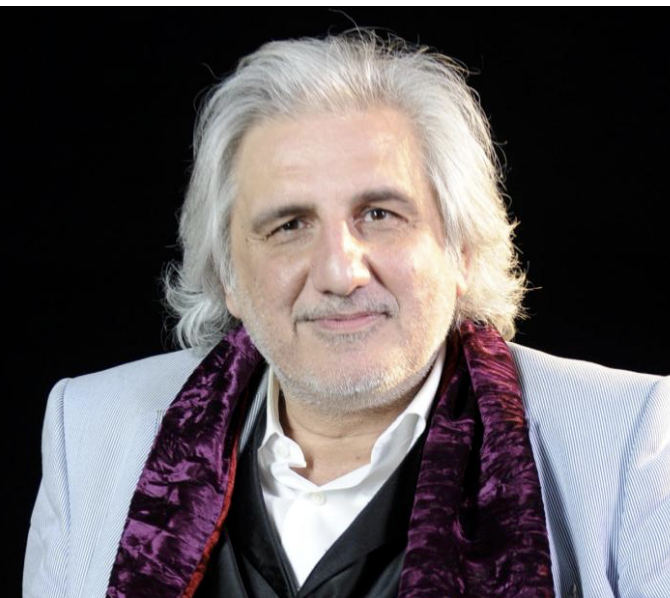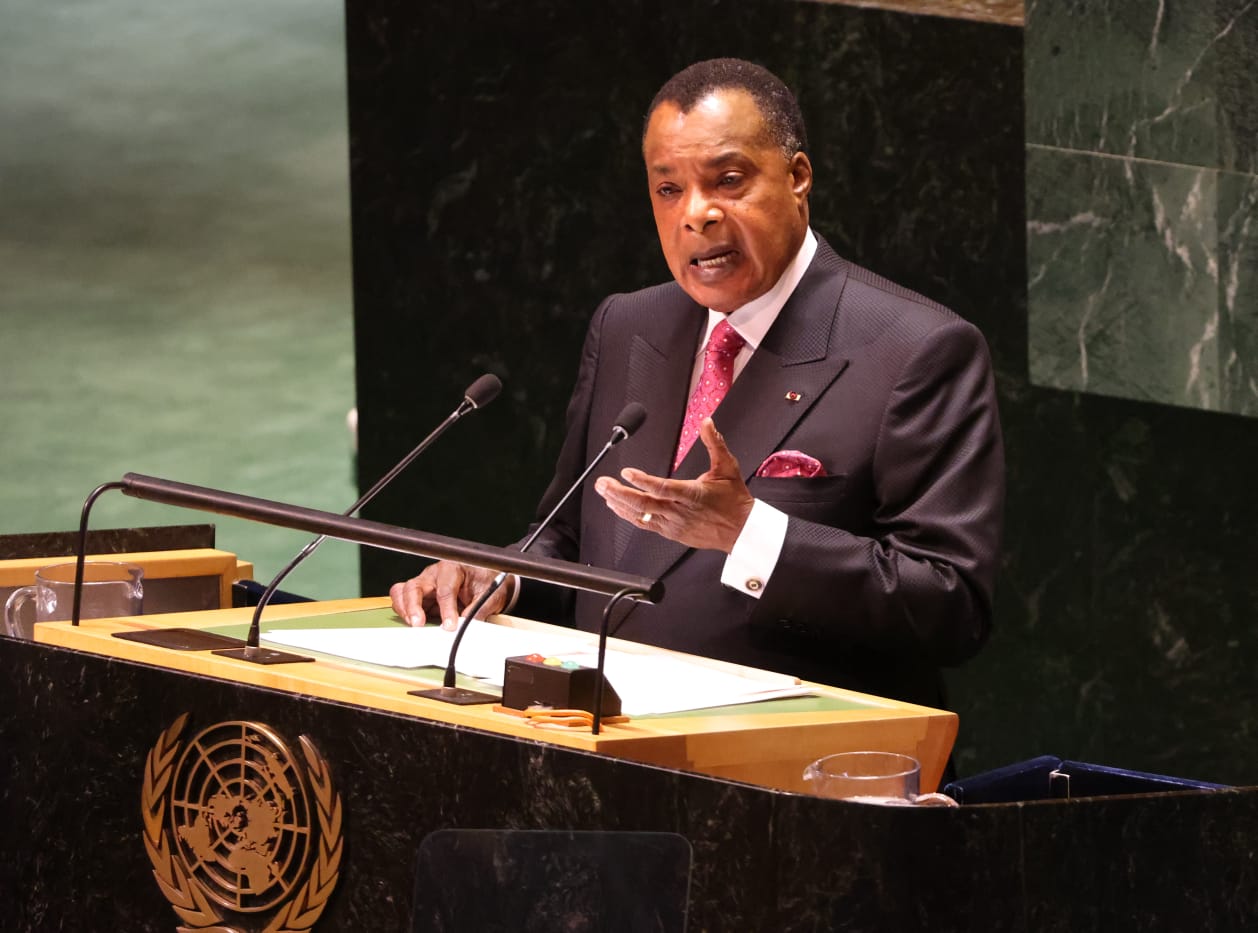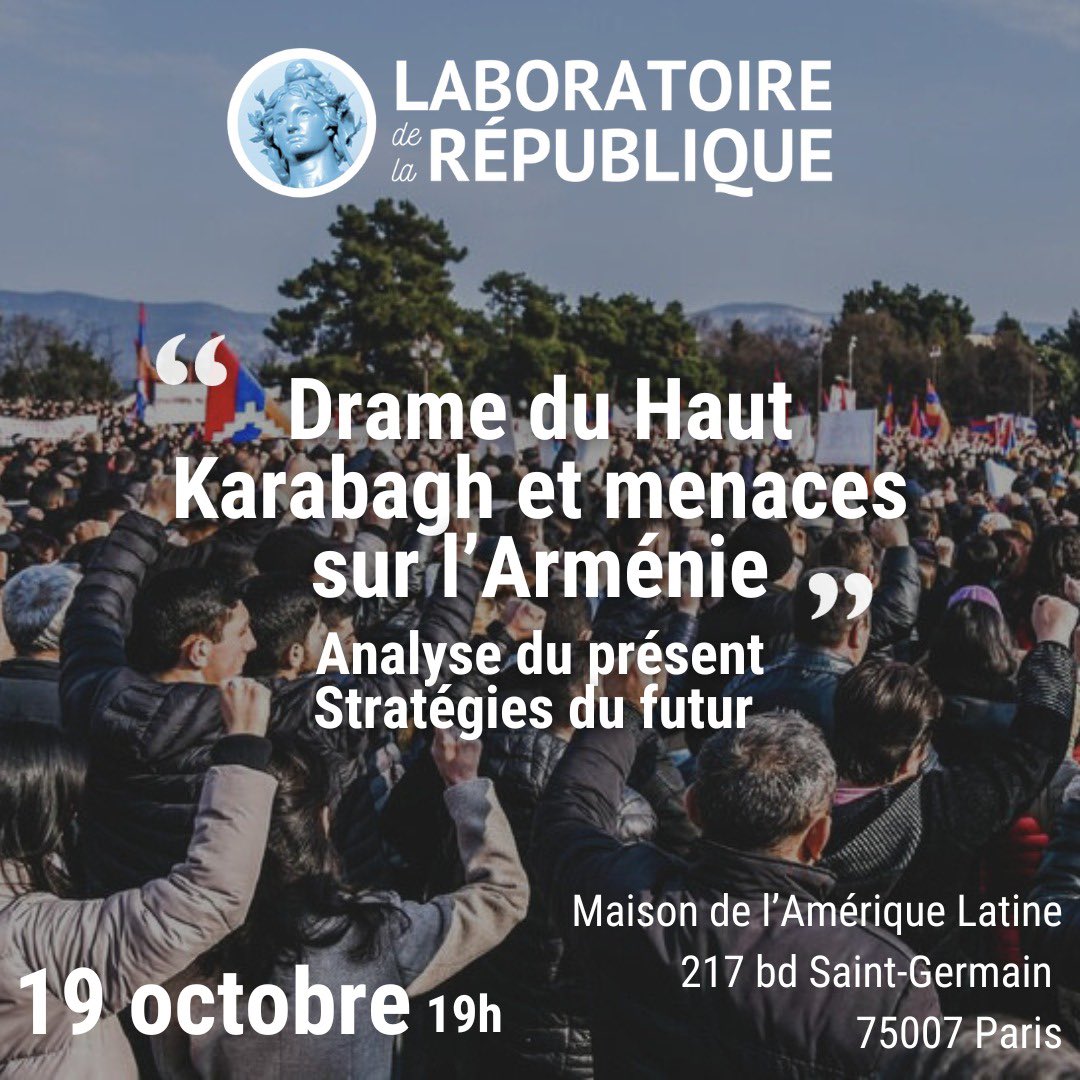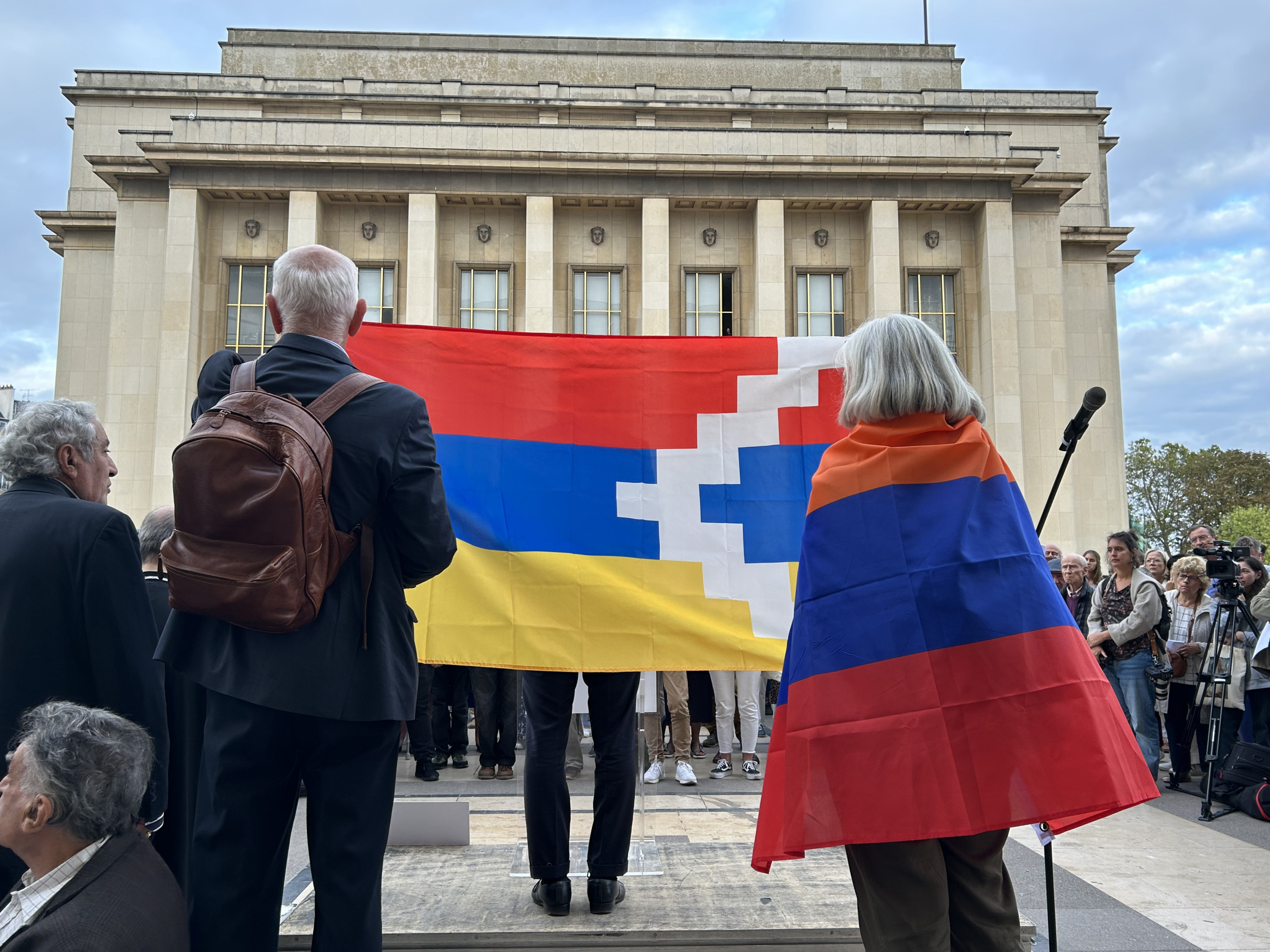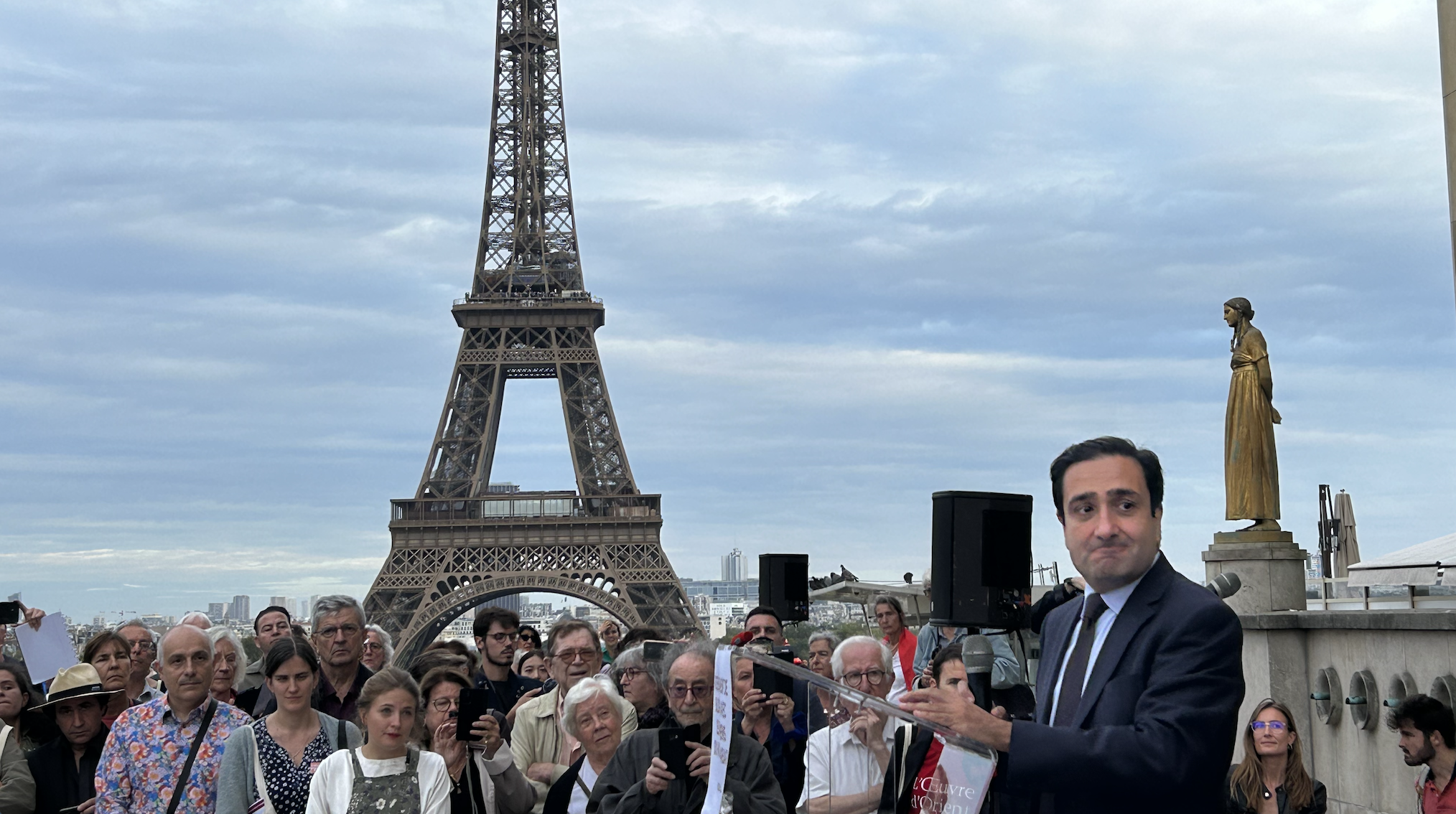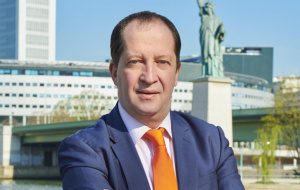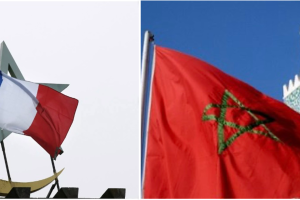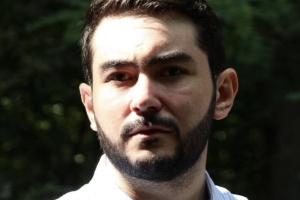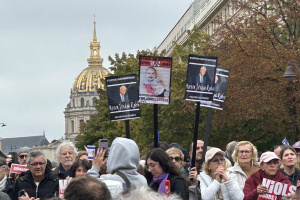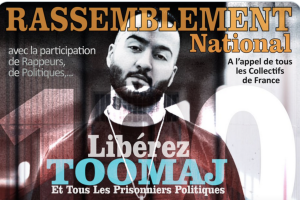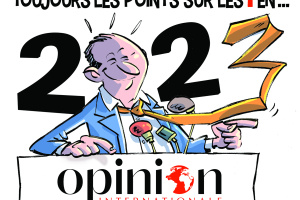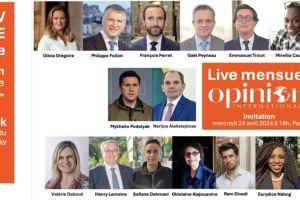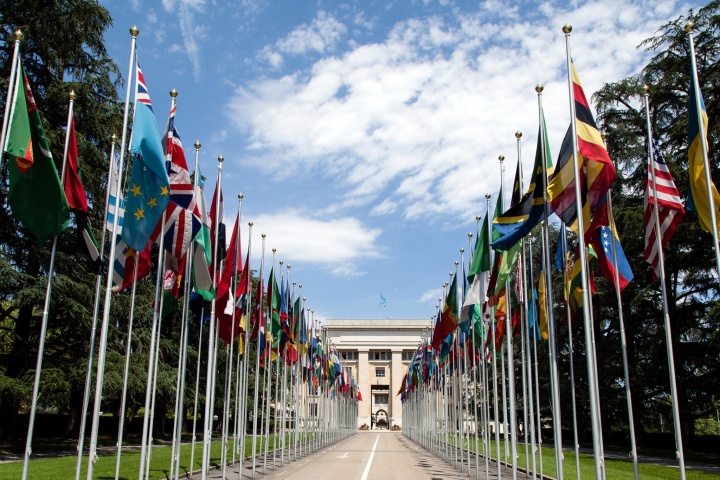
Le Palais des nations – 2012 – Crédit : Tom Page – Wikimedia Commons
Dag Hammarskjold and Martin Buber: The United Nations, Identity and International relations
As Roger Lipsey reminds us in his recent intellectual biography of Dag Hammarskjold , it is very likely that the late Secretary General’s last moments were spent reading and translating I and Thou, Martin Buber’s seminal work on reciprocity and relation.
The book and the translated written notes in Swedish were found amongst the scattered debris of the Secretary General’s plane that crashed in the middle of the night, on 18 September 1961, as it was about to land in Ndola as part of a high stake gamble to find a resolution to the Katanga crisis.
Fifty years or so later, as the world seems mired in endless turbulences, the fact that the Secretary General of the United Nations read and was a friend with one of the pre-eminent philosophers of the meaning of genuine engagement with others is of powerful significance. At a time when violent conflicts are on the rise, those men and women who think, act and speak of our tendencies to objectify rather than respect others are few and far between. Perhaps this connection from the past can shed light on where we went wrong, and how moral imagination and courage can be restored.
A philosophy of reciprocity
It is difficult to quickly summarize a philosophy as complex, sophisticated and at times arcane as Buber’s, and to decipher how it could apply to the world of international affairs. Perhaps Dag Hammarskjold himself provides the clues, by his choice of passages, by what he focused on.
Michael Ignatieff, in a recent review of Lipsey’s book, reminds us that some of the last words the Secretary General wrote were versions of Buber’s most difficult lines:
“In the beginning is relation . .’
“This is the exalted melancholy of our fate that every Thou in our world must became an It.”
The biblical connotation of the first excerpt turns centuries of philosophical thought and concepts upside down. The ego centered starting point is none. It all begins with relation, nothing precedes it, and relation is not ex post. It is at the beginning, it is a necessary condition for the being, the genuine self, the I and the Thou. It is because there is no genuine I without Thou; an I without a Thou, an I with an It, is not truly a I, it is itself an it, mired in self delusion over which it, ultimately, has little control. It is in recognizing the Thou that I exists. Similarly, the Thou does not fully exist without the I. It is in revealing itself to the I, in the making of the I that the Thou also exists. Without this relation, there is no genuine existence, there is perhaps, just a state of wilderness, as Hobbes described it, although with different implications, for Buber sees the relation as realizing reciprocal potential, while Hobbes understood the social contract as the means to avoid self-destruction.
And what of the ‘exalted melancholy’? Why is it so? Many things in our world conspire to undermine the I and Thou relationship, to turn, in one’s eye and to one’s mind, the Thou into an It. In fact, if it is our fate to turn every Thou into an It, it means that this transformation, this centrifugal force away from a coherent, genuine relationship forms part of human nature. Hence the effort against this becoming an It must begin with oneself with I. Paradoxically, for the I to be, the Thou must precede, but the Thou needs first a focus on the I, in the innermost of the I, in the I’s nature.
Hence, reciprocity is not merely that you do upon me what I do upon you; it is primarily the effort upon myself upon which the recognition of Thou depends, and which Thou needs for me to truly be I.
A philosophy for the United Nations
What did Dag Hammarskjold find in these esoteric readings and what may he have taken from them?
We should leave aside what they meant for him privately, for his own spirituality. For his mission as Secretary General, we may surmise from his own writings throughout his career at the United Nations that Martin Buber’s philosophy could be translated at three different levels.
At the broadest level, Dag Hammarskjold may have been imagining an idealistic state of international relations between countries; one steeped perhaps in a melancholy yearning for peace, expressed through his relentless dedication to conflict resolution and the use of his United Nations pulpit to articulate the principles of a post war and post colonial world order based on respect and mutual obligations. The Congo, soon to be renamed Zaire by its Western stooge Mobutu, could not provide a situation further removed from a Buberian ideal of reciprocity. For such reciprocity, when applied at the level of international relations, opposes humility to force, and consensus to confrontation, by recognizing that might does not equate right, and by acknowledging the dangers of hubris and its blind and ultimately unbridled destructive consequences. Under such an ideal, international relations would not necessarily be reduced to a naive acceptance of what the Thou (the other state) does or wants. Nor would they be grounded in dogmatic pacifism, just because the Thou precedes or conditions the I in the relation.
Such an application would be neither practical nor ethically viable. But the translation to international affairs that the Secretary General may have been looking for may be in fact found in the extension of Martin Buber’s philosophy by Levinas. In Totality and Infinity, the French philosopher ups the ante by focusing the essence of a real relation in the mystery of the Other – and in our acceptance of such mystery, whose revelation to the I is constitutive of the I. But the revelation cannot be rushed, it can’t be manufactured, and it can’t be assumed. In other words it cannot be willed. Paradoxically, the mystery of the Other must be preserved and respected for its revelation to be a possibility. And to preserve and respect the mystery of the Other, one has to take responsibility for the Other. This concept of responsibility then sheds light on the type of conduct, on the part of member states, that Dag Hammarskjold may have been imagining, and advocating for. Nor is it antiquated.
In more recent times, world leaders such as Mandela and Obama have emphasized – and international initiatives have reflected, such an ethics of responsibility in areas such as climate change and protection of civilians. It is an ethics that does not seek to objectify, and that does not claim to know the Other fully before, and as a condition for taking responsibility, and for signaling a genuine commitment to mutual respect. Its practical application may not be immediately transformative. It takes the form instead of small, practical and incremental steps, such as the ones we have seen between the US and Cuba, or between the US and Iran. But at its core lies a fundamental adherence to reciprocity, and a commitment to avoid demonization and appropriation for one’s goals, which can only be sustained when the I accepts the mystery of the Thou.
If such expectations for how states should behave may prove impracticable, perhaps the Secretary General understood Martin Buber’s call for reciprocity engagement as a philosophy for the United Nations itself. Perhaps the imperative of genuine engagement was interpreted as a guide to how the organization should engage with its member states, and this set the example: through the norms and principles it sets for ethical conduct, as well as its role as a sentinel for truth and a custodian of history, both foundational elements of meaningful relationships. For without truth (without UN Commissions of Enquiry for example), there is not an I and a Thou, only an I and an It that is fabricated to meet selfish ends, unbothered by facts. Without history (without UN missions present on the ground for example), there is not an I and a Thou, only an I and an It that is instrumentalized to avoid blame, undisturbed by grievances for past harm. For the Secretary General, the United Nations was the upholder of this imperative for equivalence between member states, linked to one another through relationships anchored in truth, history, respect, recognition, and fallibility.
And not just with one another. With the United Nations as well. For the symbiotic relationship between the I and the Thou applied to the organization as well. As the voice and conscience of mankind, and as the truth teller and guardian of history, the United Nations reveals member states. At its most effectively and genuinely deployed, and more so than any diktat from the Security Council, it is the moral authority of the Secretary General that can confer legitimacy onto state. It is he or she who can most powerfully expose the true essence of any country. And at the same time the relationship reveals the UN. Of course, member states, individually or in various groupings, make the UN through myriad ways, from the imposition of arcane requirements by governing bodies, to restrictions emanating from the Security Council, and the influence of the purse on UN actions.
Yet, even in what often seems to be a subservient relationship, the organization retains reciprocal power, of the sort that sustains genuine engagement. The way the UN lives the relationship with member states defines it. And such relationships are at their most powerful when the United Nations, through its officials, affirm with confidence the values it has been entrusted with, while recognizing its own fallibility, and accepting the mystery of the Other, the state and the people. It is a difficult balance to reach, yet the Secretary General, day in and day out, strove for the border between the UN and its constituents, between the I and the Thou.
In the end, and perhaps more central to Dag Hammarskjold’s own ethos and preoccupation even, the philosophy of reciprocity finds its most direct and its more powerful application as a guide to the conduct, temperament and qualities that he expected from international civil servants.
In fact, throughout his career, Dag Hammarksjold had often articulated his definition of public service, and of how United Nations officials in particular should conduct themselves. And after years of exposure to the vicissitudes of international affairs, with its instants of sublime human behavior interspersed amongst countless moments of mediocrity, if not moral turpitude, he offered the following maxim for the international civil servant, and most likely, for the citizen of the world:
“To push one’s awareness to the utmost limit without losing one’s inner quiet, to be able to see with the eyes of others from within their personality without losing one’s own”.
It is not difficult to decrypt Martin Buber’s influence in these lines, where the conduct of the United Nations official is suffused with a philosophy of reciprocity. And where the identity of a world citizen is defined neither by total subjugation to the Other nor in the self delusional erection of barriers from the Other, but by a mutual responsibility towards one another, without demonizing the Other, while being confident of one’s perspectives.
Until the very end, Martin Buber’s philosophy imbued Dag Hammarskjold ‘s worldview, his hopes for international affairs, his understanding of what the United Nations should be, and his expectations of how an international civil servant should conduct herself. It was a view that, at the level of the state,or the level of the individual, leads to the making of one’s identity in relation to, and respect of the Other, and the humble confidence that arises from reciprocity, from the I and Thou, not the I and It.
It is not an easy philosophy to translate into action. In fact, its application in an organization such as the United Nations consists of many facets, from the daily ethical and professional behavior of its staff, to the design of its field missions and the content of its reports to member states. In fact, very recent reviews of United Nations performance and operations have at times made reference to such aspects. Yet, they all seemed to miss the fundamental point. For it is first and foremost a philosophy for the action, words and conscience of its Secretary General. Dag Hammarskjold was exploring it and living it until his very last moments. Today, it is a philosophy that has recently underpinned the agreements between the US and Cuba and Iran, after decades of mistrust and demonization. It is one that will need to endure, through moral courage, if we are to emerge from the turbulence.
Hollis Lomax, October 2015









